HOW THE GOSPELS BECAME HISTORY
SYNKRISIS
Comparative Approaches to Early Christianity in Greco-Roman Culture
SERIES EDITORS
Dale B. Martin (Yale University)
L. L. Welborn (Fordham University)
Synkrisis is a project that invites scholars of early Christianity and the Greco-Roman world to collaborate toward the goal of rigorous comparison. Each volume in the series provides immersion in an aspect of Greco-Roman culture, so as to make possible a comparison of the controlling logics that emerge from the discourses of Greco-Roman and early Christian writers. In contrast to older history of religions approaches, which looked for similarities between religions in order to posit relations of influence and dependency, Synkrisis embraces a fuller conception of the complexities of culture, viewing Greco-Roman religions and early Christianity as members of a comparative class. The differential comparisons promoted by Synkrisis may serve to refine and correct the theoretical and historical models employed by scholars who seek to understand and interpret the Greco-Roman world. With its allusion to the rhetorical exercises of the Greco-Roman world, the series title recognizes that the comparative enterprise is a construction of the scholars mind and serves the scholars theoretical interests.
EDITORIAL BOARD
Loveday Alexander (Sheffield University)
John Bodel (Brown University)
Kimberly Bowes (University of Pennsylvania)
Daniel Boyarin (University of California, Berkeley)
Fritz Graf (Ohio State University)
Ronald F. Hock (University of Southern California)
Hans-Josef Klauck (University of Chicago)
Angela Standhartinger (Marburg University)
Stanley K. Stowers (Brown University)
HOW THE GOSPELS BECAME HISTORY
JESUS AND MEDITERRANEAN MYTHS
M. David Litwa
Yale UNIVERSITY PRESS
New Haven & London
Copyright 2019 by Yale University.
All rights reserved.
This book may not be reproduced, in whole or in part, including illustrations, in any form (beyond that copying permitted by Sections 107 and 108 of the U.S. Copyright Law and except by reviewers for the public press), without written permission from the publishers.
Yale University Press books may be purchased in quantity for educational, business, or promotional use. For information, please e-mail (U.K. office).
Set in Baskerville type by Newgen North America.
Printed in the United States of America.
Library of Congress Control Number: 2018964308 ISBN 978-0-300-24263-8 (hardcover : alk. paper)
A catalogue record for this book is available from the British Library.
This paper meets the requirements of ANSI /NISO z39.48-1992 (Permanence of Paper).
10 9 8 7 6 5 4 3 2 1
For Elham , Love and inspiration
, Love and inspiration
.
Empedocles DK 31 B114
CONTENTS
HOW THE GOSPELS BECAME HISTORY
INTRODUCTION
THE GOSPELS, MYTHOGRAPHY, AND HISTORIOGRAPHY
A mythic belief is the acceptance of things that are not the case and are made up... and in which many people place credence.
Sextus Empiricus
This book compares stories in the canonical gospels with stories often classified as Greek and Roman myths. Myths in popular jargon are false stories. Both the gospel authors (evangelists) and the Greco-Roman writers studied here considered much of their sacred lore to relate what had actually happened and in this sense to be true.
To be sure, the stories compared here include fantastic or seemingly impossible elements that many modern persons would find difficult to believe. But to classify all these stories as myths due to these elements would concede too much to modern sensibilities. In this work I am mostly concerned with ancient conceptualities and structures of plausibility. With the exception of my concluding chapter, I am solely concerned with ancient concepts of myth. To remind readers of this fact, I will commonly employ the Greek term mythos (plural mythoi).
In the late first century CE, many young children would have learned the meaning of mythos in the ancient equivalent of primary school. A mythos, in this rendition, was a story relating events generally considered to be fantastical or impossible.
Asclepiadess threefold categorization was rehearsed in a handbook that the orator Quintilian wrote around the same time the gospels were written (the late first century CE). He said, We accept three kinds of narrative... : fable, found in tragedies and poems and remote not only from the truth but also from the appearance of truth; fiction, made up by comedians as false but like the truth; and history, which contains the exposition of events that happened.
In this account, mythos is translated as fable (fabula) and is considered to be untrue. By untrue, Quintilian evidently meant that the events recounted in fable did not actually happen. Not only did they not happen, they did not even resemble events that happen. Quintilian did not give examples, but one can again think of Pegasus born from the gorgon.
After reading these definitions, one might have the impression that mythoi or fabulae were thought to be stories that were by definition untrue. Yet the relation between mythoi and truth was more complex. Plato famously created an eikos mythosa plausible myth that he intended, in some fashion, to speak the undercurrent of truth.
Plutarch, a Greek contemporary of the evangelists (46120 CE), expounded on a similar definition. Mythos, he opined, means a false story [ Plutarch posited an ontological hierarchy based in part on his Platonic philosophy. The actual events (erga) are considered most real, while the historical narrative (logos) relating those events is a second-order representation. Even less real is mythos, a third-order simulation of the second-order account (logos).
For a Platonist such as Plutarch, a simulation always involved some degree of distortion. A mythos in some fashion distorted the logos of actual events. A mythos therefore needed to be cleansed in order to restore it to the level of historical narrative (logos). In Plutarchs own words, Let me therefore purify the mythical [to mythdes] by making her submit to reason and take on the appearance of history [historias opsin].
This quote, in particular the final phrase, is crucial for this study, and it is appropriate here to provide a preliminary statement of my central claim. The gospel writersinsofar as their social and educational situation allowedwrote their stories so that they took on the appearance of historia. Whether or not the evangelists did report actual events is a separate question and is not my concern. Evidently they thought they did. At any rate, my focus is on how the evangelists used historical tropes to convince readers that they spoke of realand thus trueevents.
It is important to understand what the evangelists were doing in terms of the literary theory of their time. According to both Theon and Plutarch, the definition of mythos included what Asclepiades and Quintilian called plasmafiction, or more literally a made-up story. Plasma designated a story that did not happen but could have happened and in many cases seemed to have happened.
Whether or not one follows the Asclepiadean or the Plutarchan concept of mythos, however, one can agree that there was a basic conceptual division between mythos (an account of what did not
Next page


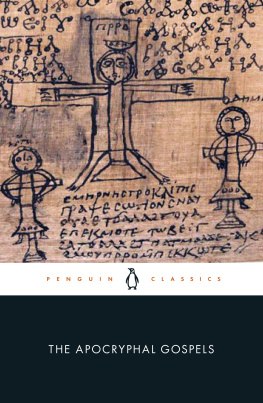
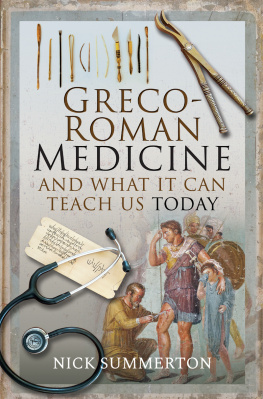
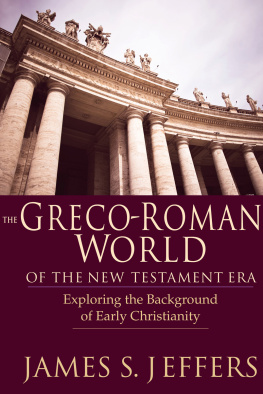
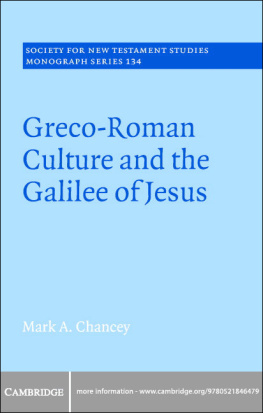
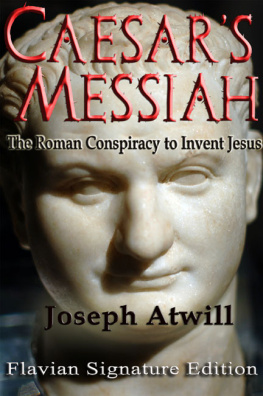
 , Love and inspiration
, Love and inspiration